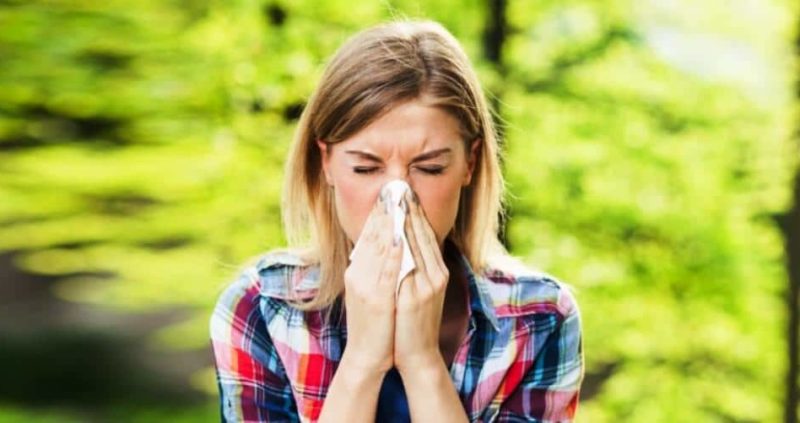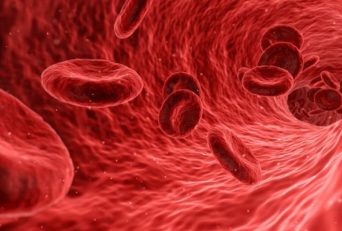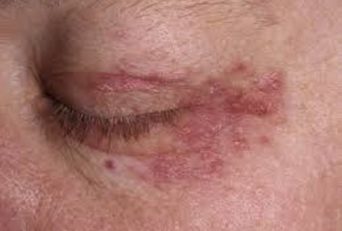There are kids and adults those have different restrictions as they are allergic to them.
Many of us have experienced allergic reactions to specific food materials or pollutants. But do you know what allergy exactly is?
Table of Contents
What Is An Allergy?
An allergy is a way of protection of the body by our immune system when it is posed to some of the external threat. The threat can be really common things like dust, pollen grains, a particular food substance or something hereditary.
Allergies can be of two types namely IgE-mediated and non-IgE-mediated.
What Happens In An Age Mediated Allergy?
When you get attacked by a threat which is known as an allergen, our body starts producing a huge amount these antibodies IgE.
When they are produced they come up to the surface and attach themselves to a group of cells present on the inner skin surface known as mast cell.
This stage is known as Sensitization. This process is responsible for the repetition of one particular type of allergy to an allergen.
This first time you don’t experience any kind of symptoms.
Mast cells are a specialized group of cells which are present in the tissues which are in contact with the environment like skin, nose, eyes, mouth, throat, stomach and gut wall.
When the allergen enters the body, these mast cells identify it as a threat to the body and produces histamine. Histamine is responsible for the allergic reactions that we can see physically.
What Happens In An Non-Ige Mediated Allergy?
The mechanism of this type of allergy is not really known but it is mostly hereditary in nature. Hereditary allergies cause the person to have the same allergies as his family, and the cells of their body react in an odd way in the presence of an allergen.
Symptoms
There are various symptoms of an allergy which mainly depends on the fact that which part the allergen has affected the most. They are-
- Running nose.
- Sneezing.
- Conjunctivitis.
- Asthma.
- Redness of skin.
- Inflammation of skin.
- Itchy skin.
- Wheezing cough.
- Stomach ache.
- Nausea.
- Vomiting.
- Diarrhea
In severe allergies known as Anaphylaxis, symptoms may be a severe asthma attack, swelling of the throat and lowering of blood pressure. Anaphylaxis is often fatal.
There are various treatments available for allergies. Usually, for mild allergies, doctors prescribe over the counter drugs like antihistamines and for severe allergies, immunotherapy is given.
Though these treatments are pretty effective, it sometimes results in side effects. The safest way to treat allergies is to use home remedies. That is why I enlist some of the most preferred home remedies to get rid of allergies.
Home Remedies

1. Saline
Saline water can be very reliable when you got the allergies affecting your nose and causing you to sniff around. Saline water helps to remove mucus along with the allergens.
Method
- Mix 1 teaspoon of salt a little baking soda in 2 glasses of warm water.
- With the help of droppers, pour this solution into the nostrils.
- Allow the solution to come out through the other nostril or the mouth.
- You can blow your nose gently after some time to blow off the excess water and remaining mucus.
- Repeat the same method with the other nostril as well.
- You can do this 2-3 times a day till your condition improves.
2. Steam
Breathing in steam on a daily basis will actually help to remove all the mucus present inside and any kind of allergen which has gone inside you.
This will help to get rid of nasal allergic symptoms and swelling of the throat.
Method
- Boil a large bowl of water.
- You can add few drops of your favorite essential oil like lavender oil, etc. to promote the fragrance.
- Cover your head with a towel and bend over the bowl covering your eyes so that they don’t get irritated.
- Inhale deeply for 10 minutes at least and blow your nose afterward.
- You can repeat several times a day till you get cured.
- For children, you can pour hot water on their head, which is also good for allergies.
3. Ginger
Ginger is a naturally occurring antihistamine agent. It also has an antiviral, antibacterial, anti-inflammatory and immune booster agent. These properties treat problems like a headache and runny nose.
Method
- Grate one ginger; add 2 clove buds and a small piece of cinnamon to a bowl of water.
- Boil the above for like about 5 minutes and add honey and lemon juice.
- Drink this tea 3 times daily, especially during the allergic season.
- Alternatively, you can chew small pieces of ginger whenever you want and include ginger slices in your diet as well.
4. Turmeric
Turmeric is a very good antioxidant and anti-inflammatory agent which helps to combat the allergic symptoms. It also acts as an immune-booster. It helps to reduce symptoms of allergies like a cough, dry mouth, sneezing, and inflammation.
Method
- Make a mixture of turmeric powder and honey.
- Mix them well and store in an airtight container or you can prepare it fresh every time you need it.
- Eat one teaspoon of this everyday when you have allergies. You can take it with warm water.
- You can also have warm milk with turmeric powder. This helps in boosting your immunity.
- Incubation of turmeric in your daily diet is a good choice.
5. Garlic
The chemical constituent present in garlic is known as Quercetin which is a natural anti-histamine agent. This helps to reduce any kind of skin allergies and well as rhinitis. It is also a very good antibiotic and antiviral agent.
Garlic also promotes quick healing.
Method
- You can chew 2 cloves of raw garlic or boiled garlic during the time you are suffering from allergies.
- Including garlic in your diet is also very important.
6. Apple Cider Vinegar
Apple Cider vinegar is a very effective remedy for the treatment of allergic reaction because it has antibiotic and antihistamine agents. It helps to reduce various allergic symptoms and also increases immune system of your body.
Method
- Add 2 spoons of vinegar to a glass of warm water.
- Add one teaspoon of honey and lime juice each to the above mixture.
- Drink this 2-3 times a day when you are suffering from allergies.
7. Stinging Nettle
This is very widely used by doctors as an alternative to medicines for the treatment of allergic reactions. It has antihistamine and anti-inflammatory properties which are very effective to reduce the allergies. It also provides fast relief to coughing, sneezing, and itching.
Method
- Add few dried nettles leaves to a bowl of boiling water to make a tea.
- Let it soak in it for 5-10 minutes.
- Filter the solution and add one teaspoon of honey to overcome the bitter taste.
- Drink it 2-3 times a day when you are suffering from allergies.
Nettle should not be consumed by pregnant women and children as it can create toxicity in their body.
8. Oil Pulling
Oil Pulling method is a very ancient Ayurvedic method which is effective in pulling out the allergen from your body. T also removes harmful toxins and helps you to remain healthy.
Method
- Put one big spoon of coconut oil or sesame oil in your mouth.
- Twist and turn and wash your mouth with this oil for over 15 minutes.
- Spit the oil out and immediately rinse your mouth with warm water.
- If you prone to allergies do this every day in the morning.
Do not swallow even a little bit of the oil as it contains the allergens and might trigger anaphylaxis.
9. Probiotics
Probiotic known as Lactobacillus acidophilus helps to reduce the upsurge of allergic reactions.
Method
- Eat probiotic yogurt on a daily basis to keep allergies at a bay.
10. Vitamin C
Vitamin C contains antihistamine properties that help to reduce the allergic reactions inside your body. It also increases immune system and helps to fight various infections.
- You can eat foods which are high in vitamin C like lemons, oranges, broccoli, grapefruit, kiwi, bell peppers, potatoes, strawberries, sprouts, and tomatoes.
- You can also take supplements of Vitamin C which are available as capsules but consult your doctor first.
11. Honey
Honey is a very popular choice for treatment of allergies.
- Consume one tablespoon of honey early in the morning of with any kind of drink you take throughout the day.
12. Green tea
Green tea is a natural antihistamine agent. Various researchers have established the fact that green tea contains a specific constituent known as Methylated epigallocatechin gallate which inhibits the mast cells to show any kind of an allergic reaction. It also protects against allergic symptoms like watery eyes and cough.
- Soak the green tea leaves in a glass of boiling water for 5 minutes.
- Strain the above solution and add one tablespoon of honey.
- Consume twice when you are having allergies. You can drink green tea all through the year to keep allergies away.
13. Chamomile Tea
Chamomile tea has natural antihistamine properties which are useful during the onset of allergies. If you do not have a medical history of being allergic to ragweed then you can surely drink this tea.
- Soak the herb for about 10 minutes in warm water.
- Filter the above solution and add honey.
- Drink it twice a day.
14. Peppermint Tea
Peppermint tea is a very good decongestant. It clears all the mucus in your alimentary tract and the allergens stuck to it. This helps to quickly reduce the symptoms of allergies.
- Peppermint tea can be made the same way as chamomile tea and consumed with honey.
- Take 1-2 times a day.
15. Thyme
Thyme is also very useful as a decongestant. It treats a cough and sinus infections easily.
- Drink thyme tea once a day.
- You can add in your diet too.
- Remember to not consume a lot of thyme herb.
Additional Tips For Treatment
- Allergic symptoms can be reduced immediately if you eat a high carbohydrate diet.
- Acupuncture is very helpful to reduce the symptoms of rhinitis as well as skin rashes.
- If you have the tendency of allergies then you should say no to alcohol, caffeine and any kind of dairy product and you should also avoid them as much as possible during the onset.
- One tablespoon of flaxseed oil a day keeps various allergies away.
- Have a clean household. Avoid any kind of mites and dust to accumulate in the places you sleep or eat.
- Dust allergic patients should always wear a mask while they are outside their house.
- Air conditioners are preferred for people who are very allergic to dust as it would prevent outside air to come in.
- Use air conditioners in your cars and keep the windows closed.
- Always take a bath after coming from outside. Remember personal hygiene is important.
- Don’t sleep with the clothes you wore outside all day as this might cause the spread of allergens.
- If you have pets do not allow them in your bedroom and not at all on your bed.
- Drink minimum 4 liters of water a day to flush out all the toxins easily and stay hydrated.
You should use Essential Oils For Allergies for relief.





